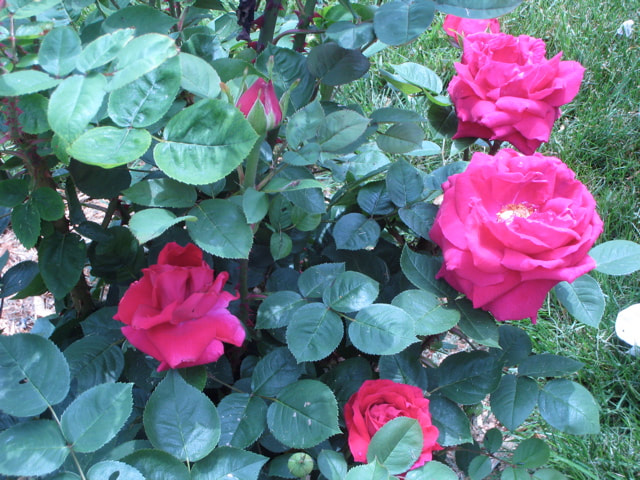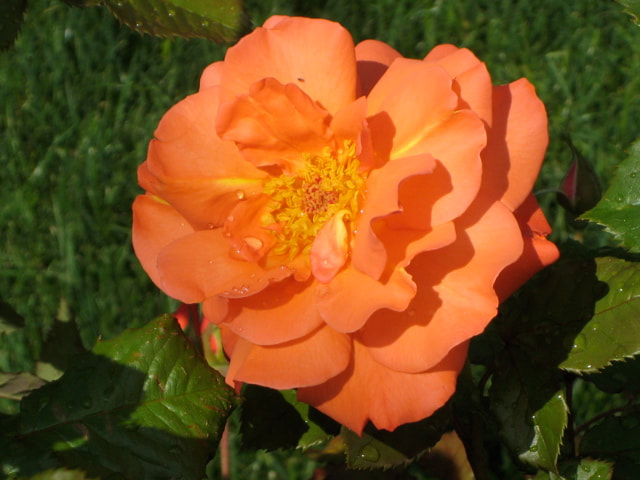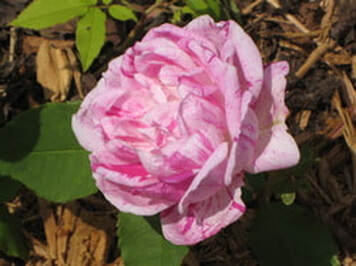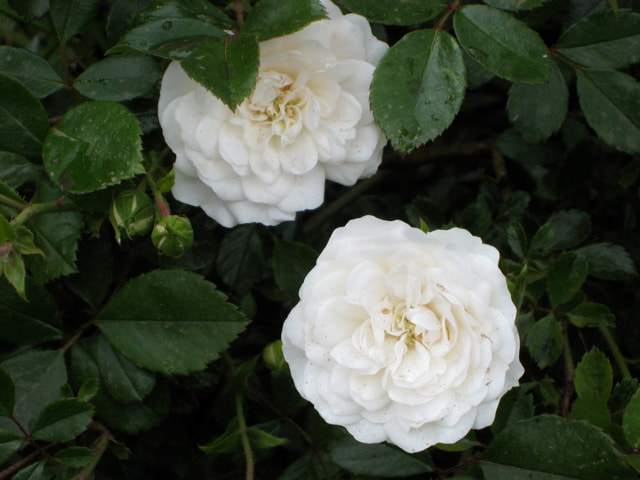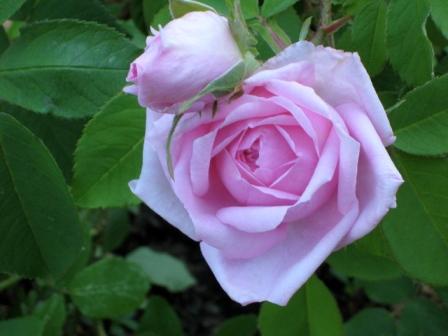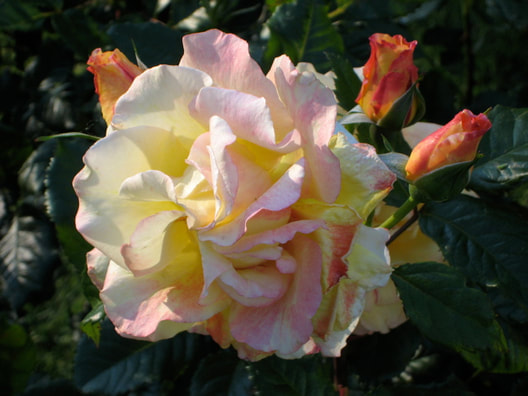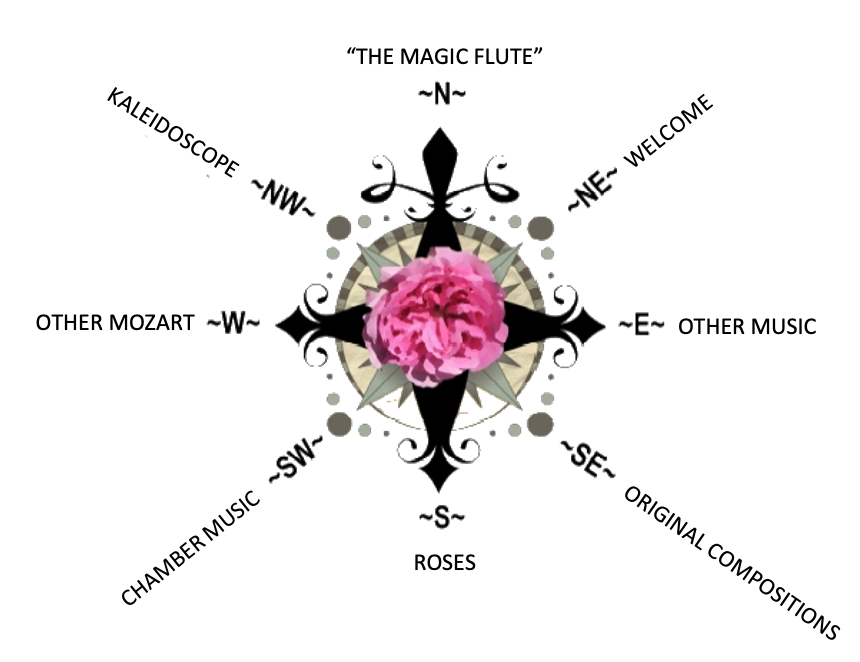- Home
- N - The Magic Flute
- NE - Welcome!
-
E - Other Music
- E - Music Genres >
- E - Composers >
-
E - Extended Discussions
>
- Allegri: Miserere
- Bach: Cantata 4
- Bach: Cantata 8
- Bach: Chaconne in D minor
- Bach: Concerto for Violin and Oboe
- Bach: Motet 6
- Bach: Passion According to St. John
- Bach: Prelude and Fugue in B-minor
- Bartok: String Quartets
- Brahms: A German Requiem
- David: The Desert
- Durufle: Requiem
- Faure: Cantique de Jean Racine
- Faure: Requiem
- Handel: Christmas Portion of Messiah
- Haydn: Farewell Symphony
- Liszt: Évocation à la Chapelle Sistine"
- Poulenc: Gloria
- Poulenc: Quatre Motets
- Villa-Lobos: Bachianas Brazilieras
- Weill
-
E - Grace Woods
>
- Grace Woods: 4-29-24
- Grace Woods: 2-19-24
- Grace Woods: 1-29-24
- Grace Woods: 1-8-24
- Grace Woods: 12-3-23
- Grace Woods: 11-20-23
- Grace Woods: 10-30-23
- Grace Woods: 10-9-23
- Grace Woods: 9-11-23
- Grace Woods: 8-28-23
- Grace Woods: 7-31-23
- Grace Woods: 6-5-23
- Grace Woods: 5-8-23
- Grace Woods: 4-17-23
- Grace Woods: 3-27-23
- Grace Woods: 1-16-23
- Grace Woods: 12-12-22
- Grace Woods: 11-21-2022
- Grace Woods: 10-31-2022
- Grace Woods: 10-2022
- Grace Woods: 8-29-22
- Grace Woods: 8-8-22
- Grace Woods: 9-6 & 9-9-21
- Grace Woods: 5-2022
- Grace Woods: 12-21
- Grace Woods: 6-2021
- Grace Woods: 5-2021
- E - Trinity Cathedral >
- SE - Original Compositions
- S - Roses
-
SW - Chamber Music
- 12/93 The Shostakovich Trio
- 10/93 London Baroque
- 3/93 Australian Chamber Orchestra
- 2/93 Arcadian Academy
- 1/93 Ilya Itin
- 10/92 The Cleveland Octet
- 4/92 Shura Cherkassky
- 3/92 The Castle Trio
- 2/92 Paris Winds
- 11/91 Trio Fontenay
- 2/91 Baird & DeSilva
- 4/90 The American Chamber Players
- 2/90 I Solisti Italiana
- 1/90 The Berlin Octet
- 3/89 Schotten-Collier Duo
- 1/89 The Colorado Quartet
- 10/88 Talich String Quartet
- 9/88 Oberlin Baroque Ensemble
- 5/88 The Images Trio
- 4/88 Gustav Leonhardt
- 2/88 Benedetto Lupo
- 9/87 The Mozartean Players
- 11/86 Philomel
- 4/86 The Berlin Piano Trio
- 2/86 Ivan Moravec
- 4/85 Zuzana Ruzickova
-
W - Other Mozart
- Mozart: 1777-1785
- Mozart: 235th Commemoration
- Mozart: Ave Verum Corpus
- Mozart: Church Sonatas
- Mozart: Clarinet Concerto
- Mozart: Don Giovanni
- Mozart: Exsultate, jubilate
- Mozart: Magnificat from Vesperae de Dominica
- Mozart: Mass in C, K.317 "Coronation"
- Mozart: Masonic Funeral Music,
- Mozart: Requiem
- Mozart: Requiem and Freemasonry
- Mozart: Sampling of Solo and Chamber Works from Youth to Full Maturity
- Mozart: Sinfonia Concertante in E-flat
- Mozart: String Quartet No. 19 in C major
- Mozart: Two Works of Mozart: Mass in C and Sinfonia Concertante
- NW - Kaleidoscope
- Contact
Welcome!
Hello, and welcome to "Mozart's Roses!"
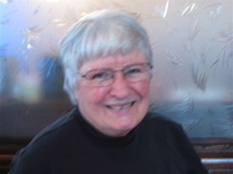
The website’s name says it all. It’s all about Mozart’s music (and music by other classical composers) and roses—the rose varieties in my garden.
The two aren’t usually linked in the same breath, although there is a rose named for Mozart. What I want to do in the sections of the site is explore some of my great interests and open my enjoyment to others.
Did you notice the design of the home page? It’s a compass rose, an organizing principle that continues the rose theme. Even here I’ve included some symbols that came from my Magic Flute and Masonic research; perhaps as you read through some of the essays and articles you will discover them.
There is a lot of music history here because my career has been in that field, specifically teaching music history (and related subjects) at the university level for over 31 years. It’s hard to disconnect that part of my background from anything I am doing now. For instance, since my retirement from active full-time teaching I’ve given a number of presentations about music history subjects, such as talks before academic gatherings and Masonic groups about Mozart’s Magic Flute (North on the compass), my primary research focus, and presentations about Brahms’s German Requiem (East) with church groups, as it’s a remarkable, deeply spiritual work. I’ve also included research by other scholars (Northwest, in Kaleidoscope) that will complement and be a counterpoint to the information I have prepared.
On the other side of the website title is roses (South on the compass). I am very interested in the antique roses, those that were around before 1867 when the first Hybrid Tea rose was developed. A number of these old varieties are still around but hard to acquire, or are not suited to my climate zone. My former garden included about a half dozen genuine antiques, but all the rest were modern (post 1867) varieties hybridized from the antiques varieties. They are highly photogenic and distinctive flowers and shrubs, and the history of the old families is fascinating.
But perhaps most fun for me are my presentations about the connection between the names given to old roses and musical subjects. Who knew that there was such a connection! But there is, and it’s exciting to explore that very obscure byway where music history intersects rose culture.
The essays and articles around which I began the website are necessarily the ones about music, as these were immediately available in finished form. More slowly developing are the essays about the roses, in particular the old roses, and about further topics in music. I hope you will be patient as I work on them for eventual inclusion in the site.
Do prowl around the site. I hope you will discover interesting nooks and crannies and find yourself intrigued and pleased with the images and verbal content. Please do offer comments if you wish!
Thank you for visiting MOZARTSROSES! I hope you’ll return often.
Judith Eckelmeyer
Judith A. Eckelmeyer, Ph.D., is Professor Emerita of Music at Cleveland State University, where she taught Music History and other courses for over 31 years. She continues her music activities as a chorister in the Cathedral Choir at Trinity (Episcopal) Cathedral in Cleveland; her compositions have been performed by the Trinity Cathedral Choir at both Evensong and Eucharist services there. (You can listen to them in the sound files in the Southeast section of this website.) She has frequently presented music literature sessions for the public and in virtual reality’s Second Life at Amadora Recital Hall at the A Piacere sim with renowned pianist and piano teacher Alpha Hockett Walker. Her principal publications concern Mozart’s Die Zauberflöte. She was program annotator at the Cleveland Museum of Art’s Gala Subscription Series for nearly two decades.
Some handy short cuts to get you started:
Choose Your Direction
The Magic Flute, II,28.
